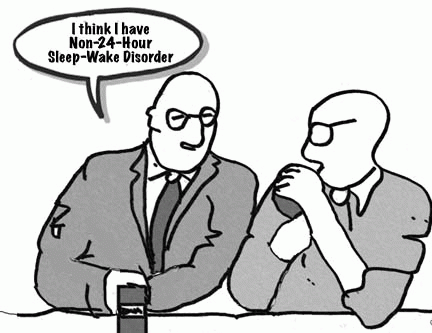If you are like most people, you have been watching
"Ask Your Doctor" drug ads on TV for years. The ads, called
direct-to-consumer drug advertising, have done two amazing things. They have
made drugs like Claritin, Lipitor and the "Purple Pill" financial
blockbusters--and they have, to a certain extent, "sold" the
conditions behind them.
While certainly the conditions the drugs treat like seasonal allergies, GERD, high cholesterol, depression, bipolar disorder, adult ADHD, erectile dysfunction, Low T, irritable bowel syndrome, dry eye and insomnia exist, "awareness" of the conditions has greatly increased thanks to drug ads. In fact the parade of symptoms viewers may suffer from has gotten so over the top, comedian Chris Rock said he was ready to hear a TV ad asking, "Do you fall asleep at night and wake up in the morning? You may be suffering from..."
For many years, consumer drug advertising made Big Pharma Fortune 500's "most profitable industry." But now, the profit party is largely over, with blockbusters like Prozac, Lipitor, Viagra, Zyprexa, Symbicort and Nexium off patent and nothing much in the pipelines. WebMD, one of the strongest online pill merchandisers , dismissed 250 employees a year and a half ago and medical journals are noticeably page light with fewer ads. Once booming companies are now seeking mergers commensurate with the Wall Street aphorism that in boom times companies spin off and in bust times they merge.
Four years ago Pfizer merged with Wyeth, Merck merged with Schering-Plough and Roche merged with Genentech. Now Novartis, GlaxoSmithKline, and Eli Lilly are pursuing protective financial partnerships as the day of the drug blockbuster is over.
Still there are three diseases/conditions which Pharma is hoping may see it through the current lean times.
Ankylosing Spondylitis
If you look at the successful diseases Pharma has marketed to sell drugs you'll see they usually have snappy names or initials like ED, ADHD, RLS, GERD, IBS and Low T. That's why a disease Pharma is pushing, ankylosing spondylitis, is gaining the nickname AS. Ankylosing spondylitis is a real and serious inflammatory disease that affects the bones and joints. But new ads seek to convince people with back pain that their pain isn't from overexertion of a bad bed but...from AS.
This is what critics of Big Pharma call "disease mongering." Over the years, disease mongering convinced so many people they had "depression" it is said that one in four women between 50 and 64 in California is now on antidepressants.
Like "Are You Depressed" quizzes, AS ads come with a helpful questionnaire to convince people and hopefully their doctors that that they might suffer from AS. If so, they may just need to take Humira, a genetically-modified, injected drug that costs $15,000 to $20,000 a year per patient. Ka-ching. Drugs like Humira are "monoclonal antibodies" that suppress the body's immune system by blocking tumor necrosis factor (TNF). They are valuable for serious autoimmune diseases but increasingly marketed for less serious conditions.
For example, unless you really have to, who wants to take a drug whose label warns that "Patients treated with HUMIRA are at increased risk for developing serious infections that may lead to hospitalization or death?" These include "Invasive fungal infections, including histoplasmosis, coccidioidomycosi," and "Bacterial, viral and other infections due to opportunistic pathogens, including Legionella and Listeria?"
Non-24 Hour Sleep Wake Disorder
"You can't see me because of radio" and I can't see you because I'm totally blind." So begins a high saturation ad campaign that boosts "awareness" of an obscure circadian rhythm disorder called Non-24 Hour Sleep Wake Disorder-- launched by Big Pharma. How rare is Non-24? There are only 146 citations for the disorder in the entire U.S. National Library of Medicine. By comparison, there are 8,463 citations for the plague.
(Note: You can view every article as one long page if you sign up as an Advocate Member, or higher).






